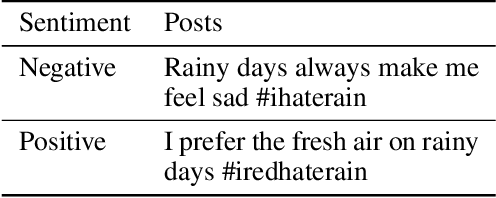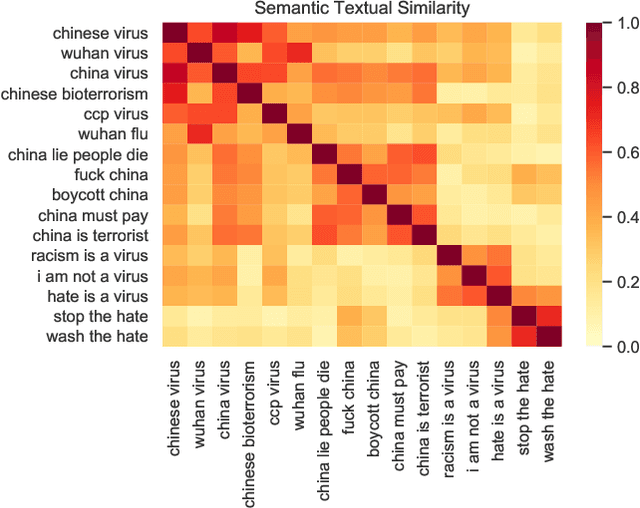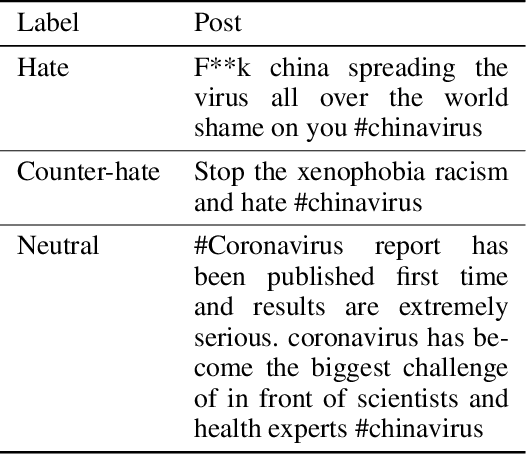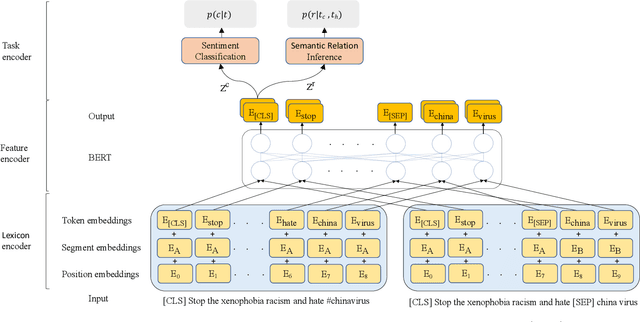Anti-Asian Hate Speech Detection via Data Augmented Semantic Relation Inference
Paper and Code
Apr 14, 2022



With the spreading of hate speech on social media in recent years, automatic detection of hate speech is becoming a crucial task and has attracted attention from various communities. This task aims to recognize online posts (e.g., tweets) that contain hateful information. The peculiarities of languages in social media, such as short and poorly written content, lead to the difficulty of learning semantics and capturing discriminative features of hate speech. Previous studies have utilized additional useful resources, such as sentiment hashtags, to improve the performance of hate speech detection. Hashtags are added as input features serving either as sentiment-lexicons or extra context information. However, our close investigation shows that directly leveraging these features without considering their context may introduce noise to classifiers. In this paper, we propose a novel approach to leverage sentiment hashtags to enhance hate speech detection in a natural language inference framework. We design a novel framework SRIC that simultaneously performs two tasks: (1) semantic relation inference between online posts and sentiment hashtags, and (2) sentiment classification on these posts. The semantic relation inference aims to encourage the model to encode sentiment-indicative information into representations of online posts. We conduct extensive experiments on two real-world datasets and demonstrate the effectiveness of our proposed framework compared with state-of-the-art representation learning models.
 Add to Chrome
Add to Chrome Add to Firefox
Add to Firefox Add to Edge
Add to Edge